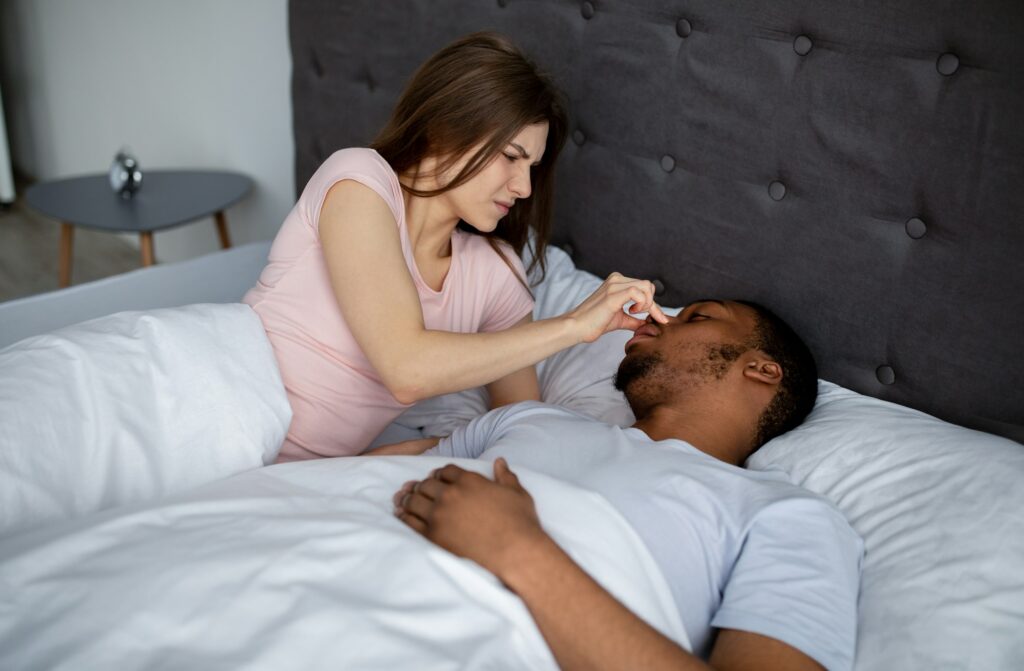Are you waking up each night feeling like your breathing has stopped, or is your partner having trouble sleeping because of the noises you make while you sleep? Trust me, you're not alone. This happens to the best of us because of two common sleeping conditions: sleep apnea and snoring. A lot of people wonder if there is any genetic basis to this. This blog will discuss the genetic association of sleep health and the potential genetic link between snoring and sleep apnea. Let's dive into it.

What Is Sleep Apnea?
Sleep apnea is a condition that wakes people up at night because their breathing stops abruptly. There are three common types of sleep apnea;
- Obstructive sleep apnea syndrome (OSA): The most common type of sleep disorder in which the muscles of your throat block your airway, causing temporary breathing pauses.
- Central sleep apnea (CSA): When your brain isn't handling the muscles of breathing as it should
- Complex sleep apnea syndrome: Is a combination of both CSA and OSA
What Is Snoring?
Snoring is very common, and we have all snorted at least once. It occurs when the airways are partially blocked during sleep, producing loud noises. Not all people who snore have sleep apnea, but snoring is almost always present if you have it.
The Genetic Link to Snoring and Sleep Apnea
The question most commonly asked is if genetics play any role in the development of sleep apnea or snoring. The answer to this is yes! These conditions runs in families.
If anyone from your family has these conditions the chances of you getting it are higher. The chances are slightly higher and increase up to 50% if your siblings or parents suffer from it. There are certain reasons why this could be true;
- Same Body Type: It is a known fact that your facial features and body structures closely resemble your family. There is a chance that you have the same structures as your family that contribute to sleep apnea & snoring like narrow airway & throat, large tongue, and large tonsils.
- Genetic Loci: some genetic variants are known to cause these two conditions and they can be inherited.
Other risk Factors for Obstructive Sleep Apnoea and Snoring
Although genetic factors play an important role it is important to keep in mind that families do share the same environment and habits in general. These could include ethnicity, alcohol habits, obesity, and other medical conditions like allergies. If you are at risk for this condition it is advised to see your dentist to start your treatment.
Conclusion
After understanding the genetic contributions to OSA susceptibility, it is essential to remember that environmental and lifestyle factors play an equally important role. Chronic snoring can lead to sleep apnea, and seeing a dentist may be recommended as a first step. Your dentist will advise you to sleep medicines or oral appliances to improve your breathing and sleep quality. Contact us today to get assessed.
We are passionate about quality sleep at Houston Sleep Associates (HSA) in Houston, TX. Our years of experience ensure that patients receive the best care customized to their needs and desires!
Schedule a Consultation
See what we offer if you've ever thought about improving your sleep. Schedule a consultation and experience the warmth, professionalism, and transformative power of sleep at HSA. Your journey to a brighter, more confident day begins with a single step. Let's take it together!

